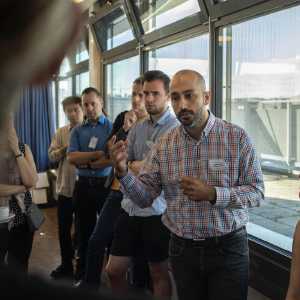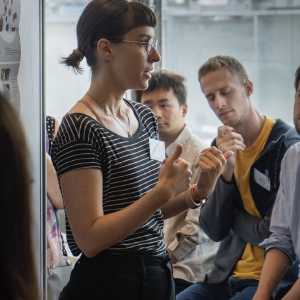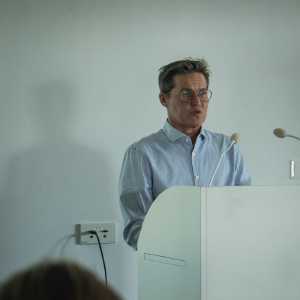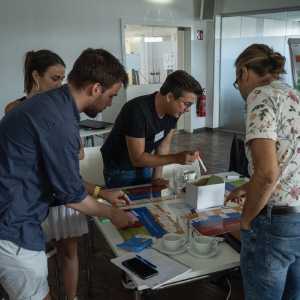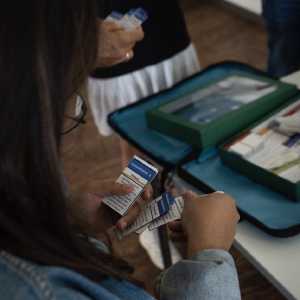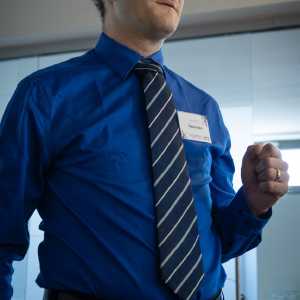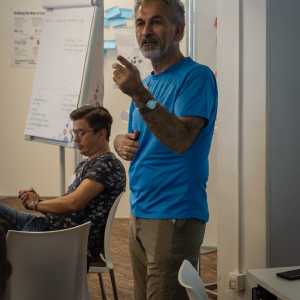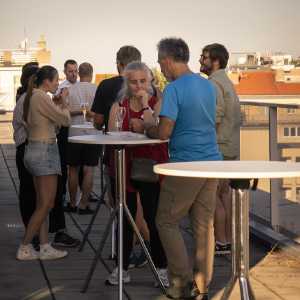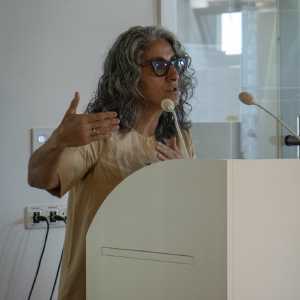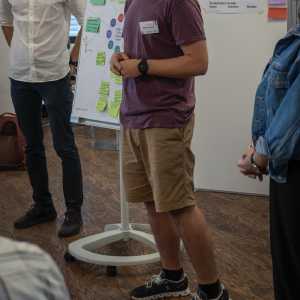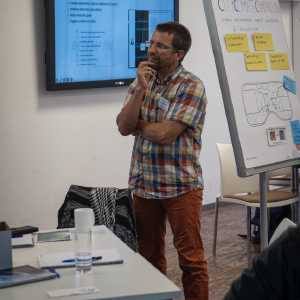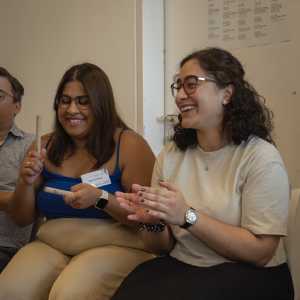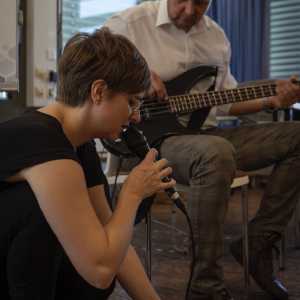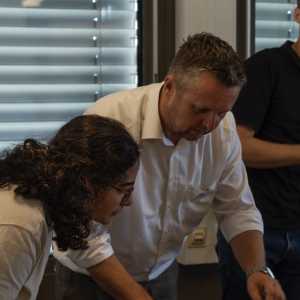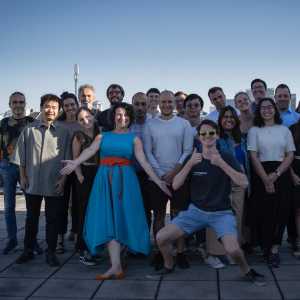by Rafael Vrecar
After five intense days, the Summer School 2023 on “Sustainable Futures”, co-hosted by TU Austria and the Center for Technology & Society (CTS), came to an end last Friday. The following review looks at the event from a student’s perspective.
First, it has to be said that the term “sustainability” has been strained in recent years, as it is one of those words that everyone talks about in order to sound informed and modern. This summer school ambitiously aimed to counteract this overuse of “sustainability” and succeeded by applying a more diverse and deeper view.
Monday
After a warm welcome and an introduction to the TU Austria and the CTS by Kurt Matyas, the first day began with all students presenting their work in seven minutes, using their posters as a presentation medium. This proved to be an intense but welcome jump into the cold water to get to know each other. In the afternoon, Bettina Mihalyi-Schneider introduced us to her work on Life Cycle Assessment and demonstrated that modeling in this case is often a complex process that requires a lot of thinking and understanding of the problem at hand. Practical examples included small IoT devices as well as the very Austrian example of “Schnitzel”.
Tuesday
Marjo Rauhala emphasized the need to integrate ethics and responsible thinking into the research and innovation process in order to be sustainable. The students were asked to prioritize their values in a card game. This task led to fruitful discussions about different terms and showed that people have different ideas about the meaning of a word. In order to promote mutual understanding, a common ground of terms must be found. This also applies to writing, since one of the most important tasks of researchers is to negotiate definitions so that we are actually talking about the same concepts and not just using the same words.
In the afternoon, Mahshid Sotoudeh continued the discussion on sustainable environments. The presentation and exercise made it clear that sustainability, in the context of the food industry, does not end with producing goods in a more sustainable way, but that packaging and logistics are just as important.
Wednesday
“Tell your story in one sentence or less”. That was the ambitious goal Tobias Kohn set for the participants. With a very carefully curated presentation with few words and many images, Tobias managed to catch the students’ attention and appeal to their ambition to improve their storytelling. Even speakers decided to change their slides for the next day after this talk.
Babak A. Farshchian presented his framework centered around a service lens perspective to foster a better understanding of practices. This perspective was new to most of the students and linked the terms “services” and “values”, which for many had no obvious connection prior to this session.
It should also be mentioned that the atmosphere between the presenters, the students, and the CTS was excellent and cooperative. Everyone met each other respectfully and with a shared enthusiasm for the presented and discussed topics.
The get-together in the evening provided a relaxed end to the day. Everyone had a good time and we were also able to discuss topics unrelated to our academic work.
Thursday
The penultimate day was the time to shine for the Faculty of Informatics of TU Wien. Hilda Tellioğlu introduced change management, which is a huge challenge for organizations on its own. Adding agile environments (e.g., software development) and sustainability into the equation can quickly become an overwhelmingly complex task. Participants were introduced to Kotter’s eight-step change model and were asked to quickly implement change management in four imaginary institutions. Although the results were remarkable for such a short time, it was quickly pointed out that there are still so many points of potential failure in any process, so that iterative improvements will be necessary in almost all cases.
In the afternoon, Florian Michahelles gave a brief overview of his work and the projects of his students.“Digital Companion” was the term around which his session, which was very lively because of the many discussions it stimulated, revolved. The students were then challenged to design digital companions to support sustainability in various realistic settings.
Friday
Friday started completely different from the other days. Heimo Sandtner and Dietlind Zehetgruber introduced a completely new concept of dealing with all kinds of mistakes. Using instruments and looping devices, the students had to completely change their field of work for one hour and prove themselves as composers. The results were very different but very entertaining. One thing is for sure, this session taught the students how to deal with mistakes in a very encouraging way. Also, due to Heimo Sandtner’s very clear policy on mistakes at the FH Campus Wien, all participants suddenly wanted chocolate.
The last day, and thus the summer school, ended with another session of seven-minute presentations in which everyone had to explain how their view of sustainability had changed and how they could incorporate what they had learned into their own dissertations. From a student perspective, this summer school was intense and different than expected (but in a good way), and the care that all the organizers and speakers put into it was clearly visible.
All in all, the learning was multifaceted. On the one hand, there were for sure some thematic insights for all students, but also the work in different groups, where in any case there was little time to adjust to each other, was trained.
Finally, it is worth noting how much room was given to feedback, engaging with each other and their topics, networking, and connecting over everyone’s passion – speakers and students alike – for sustainable research work.
